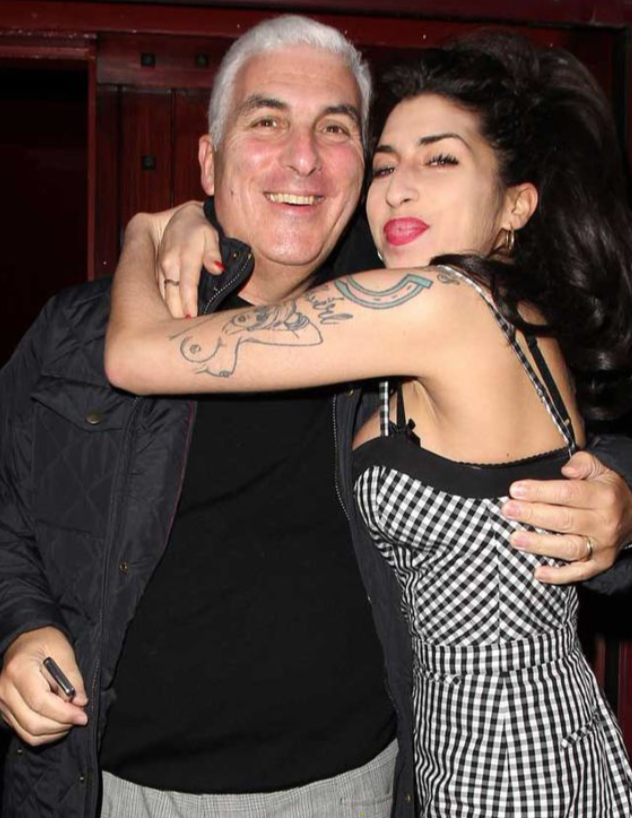They say that only you can control your destiny–every other Calvinist-oriented platitude spouting predestination is bullshit. But Shakespeare, Amy Winehouse’s fellow countryman, would likely beg to differ. He is the one that eventually helmed and perfected the concept of the “fatal flaw,” after all. And no modern persona of the past two decades has better embodied that notion than Winehouse herself, who could only manage to muster two studio albums (2003’s Frank and 2006’s Back to Black) over the course of her lengthy but wrongly emphasized for antics career.
Before she was tabloid fodder (as so many women who enjoyed having a good time in the mid-00s were), Winehouse was a jazz-oriented singer who still maintained her confessional songwriting style from the outset. At seventeen years old, Winehouse wrote the lyrics to one of the tracks that would make the cut for Frank, “What Is It About Men?,” the only song in her arsenal to so blatantly tar and feather her father as opposed to deify him (as was done in “Rehab” with the lyrics, “I ain’t got the time, and my daddy thinks I’m fine”). Exploring her twisted Freudian behavior in choosing to have an affair with a married man, Winehouse bemoans, “Emulate all the shit my mother hate/I can’t help but demonstrate my Freudian fate/My alibi for taking your guy?/History repeats itself, it fails to die.”
Winehouse’s haunting latter assertion would unfortunately end up applying to her penchant for self-destruction and returning again and again to the same man who fueled the enablement to do so, Blake Fielder-Civil. Naturally appealing for his “bad boy” of Camden Town/skulker of the music scene (yet himself lacking in any talent in the field other than partaking of drugs), Winehouse didn’t need to ask herself what it was about Blake that drew her like a nostril to cocaine. He was devil-may-care, up for anything and, the ultimate kiss of death, what Amy referred to as “the male version of [her.]” What woman could resist that? Especially since we all not so secretly just want to fuck ourselves due to the congenital human condition called narcissism.
With Winehouse’s tumultuous home life (her father’s absenteeism and eventual leaving) coming back to manifest in psychologically damaging ways later on in life, her addressment of this certain flavor for a “destructive side [that] has grown a mile wide” seems only to foreshadow the stoking of this lust once the right (or rather, wrong) agent came along in the form of Blake.
Her “silent sense of content” (lyrics from “Wake Up Alone”) could only come from loud bouts of contempt toward the one she supposedly loved as their relationship wore on, with Winehouse’s notoriety for physical assault flaring up in the years from 2006 to 2009. In this way, her dichotomous declaration on “What Is It About Men?” makes quite a bit of sense: “I’m nurturing, I just wanna do my thing/And I’ll take the wrong man as naturally as I sing/And I’ll save my tears for uncovering my fears/Our behavioral patterns that stick over the years.”
Those behavioral patterns that urged her to take heroin, crack cocaine and keep up with the best of them–Blake–seemed also a means to attempt to get the attention she felt was lacking from her father, Mitch. From a psychologist’s standpoint, it’s not exactly an arcane assumption. When her consistent acting out in these harmful ways failed to generate enough of a reaction, Winehouse took it to next level extremes. But then, even when she was put on the lockdown of rehab with Blake to get well in time to perform via satellite for the 2008 Grammys, Winehouse ended up getting herself a fix anyway–though nothing would ever top those scandalous images of her roaming the streets of London in late ’07 with Blake, battered and bloody from whatever ritualistic form their relationship took that night.
So while Winehouse at an early age had to ask herself, “What is it about men” that kept bringing her back for more simultaneous pain and pleasure in the same way the drugs provided her, it’s evident that like all of us, she was searching for something that wasn’t enough in her formative years–when it matters most to get what you need so that it doesn’t send you down a “troubled track” later on in life. To boot, that Blake was involved with someone else merely enhances the premise of Winehouse being doomed to repeat the infidelity-related sins of her father–they very ones that fucked her up. As she commented during the press blitzkrieg for Back to Black, “Most of these songs are about him. I shouldn’t have been in a relationship with him because he was already involved with someone else–a bit too close to home.” In summary, it’s no wonder Lana Del Rey was one of Winehouse’s adoring fans during her peak of fame.





















